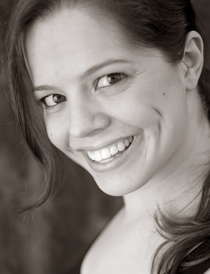
“The stories I forward tend to feature characters who live on in my mind long after the story reaches its conclusion; if I keep wondering how they’re doing, that’s a good sign.”
Tell us a little bit about yourself. Where are you from and what do you do when you’re not reading for NER?
I was born and grew up on the Mississippi Gulf Coast, spent my young adulthood in Atlanta, and moved to Albuquerque, New Mexico, after I completed my PhD in fiction writing at Georgia State University. I teach at UNM, and I write—fiction, nonfiction, poetry, whatever shows up for me on a given day! Favorite pastimes and preoccupations include spending time with my parrots and dogs, walking (especially at night, in conjunction with stargazing), music, yoga, dreams, Jungian psychology, coffee, and birdwatching from my back and front porches. I look forward to more travel, concerts, and trips to the gym when the pandemic and my related anxiety abate.
What made you decide to be a reader for NER, and how long have you been on staff?
I responded to a call for fiction readers that came out in spring 2017, and I’ve been reading for NER ever since. I leaped at the chance because of how much I’ve enjoyed my past work with other literary magazines, Five Points and Blue Mesa Review among them.
Have you ever read a submission that later got selected for publication?
Just one, “The Length in Six Strokes,” by Sharbari Zohra Ahmed, in NER 40.3. And I still think about the one that got away—we were in the final stages of accepting the story when it got picked up by another magazine.
What is your reading process like? What do you look for in a submission?
Stories aren’t one-size-fits-all, so I’m reluctant to open a submission and “look for” something specific in it. I try to read every story with curiosity, openness, and hope. What journey will this story take me on, whom will I get to meet, where will I get to go, and what will happen along the way? What will surprise me? What will move me? Who will usher me through the events? When I read an especially promising story, I save it to reread later so that I can gauge what sticks with me, what haunts or disturbs or otherwise strikes me. The stories I forward tend to feature characters who live on in my mind long after the story reaches its conclusion; if I keep wondering how they’re doing, that’s a good sign.
Of the pieces you’ve read at NER—whether in the magazine or among the submissions—which was your favorite or most memorable to you personally?
I’m continually impressed with the quality and range of creative work in the magazine, but admittedly, the published pieces that remain in my memory tend to be by writers I know, like Blas Falconer, Jenn Givhan, Dana Levin, and (watch out, world!) Benjamin Garcia. I also linger over the poetry and prose by the folks whose books have a home on my bookshelves. For personal reasons, one especially memorable essay was Traci Brimhall’s “Archival Voyeur: Searching for Secrets in Amelia Earhart’s Lost Poems” (40.4); I’ve been working on a series of poems about a character named after the aviatrix, and this essay inspired happiness and deeper research.
How has reading for NER influenced your own writing/creative pursuits?
If anything, it encourages me to keep sending out my own work. Reading for NER strengthens my understanding of what goes on behind the scenes of top-tier literary journals. I’ve read a number of strong stories that we aren’t able to publish but that I’m sure will find a good home as long as the author keeps looking. So I keep looking too.
What do you read for pleasure? Is there something you’re reading at the moment that you would recommend?
You’re risking an essay-length response! It’s summer, so I’m reading only for pleasure, everything for pleasure.
In the past couple of months, I’ve finished Lyanda Lynn Haupt’s Crow Planet; Meg Day’s Last Psalm at Sea Level; Jenn Shapland’s My Autobiography of Carson McCullers; an Amelia Earhart biography called East to the Dawn, by Susan Butler; One Art (Elizabeth Bishop’s collected letters) and her complete poems (both rereads); The Thing about Jellyfish, by Ali Benjamin (loaned to me by my 11-year-old friend Charisma); W.S. Merwin’s Garden Time; and Lee Ann Roripaugh’s Year of the Snake. Right now I’m reading Louise Erdrich’s The Night Watchman, and up next are Helen Macdonald’s H Is for Hawk, Lauren Hough’s Leaving Isn’t the Hardest Thing, and Louise Glück’s Meadowlands. I’m also finding a lot to enjoy in NER 42.2.
Some recent books that have had an especially powerful and lingering impact on me are Jericho Brown’s poetry collection The Tradition; Alexander Chee’s memoir How to Write an Autobiographical Novel; the novels Jubilee by Jenn Givhan and Under the Rainbow by Celia Laskey; and the middle-grade graphic novel Snapdragon by Kat Leyh.
I recommend them all!
Our staff readers, all volunteers, play an essential role in our editorial process and in our mission to discover new voices in contemporary literature. A full list of staff read
